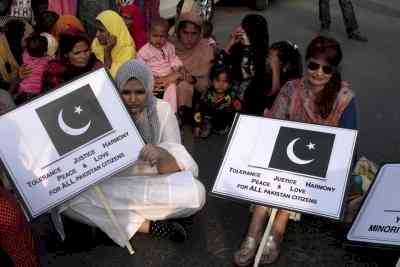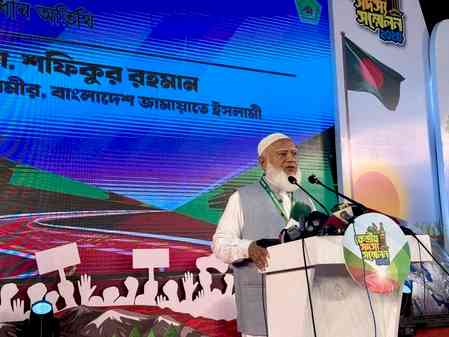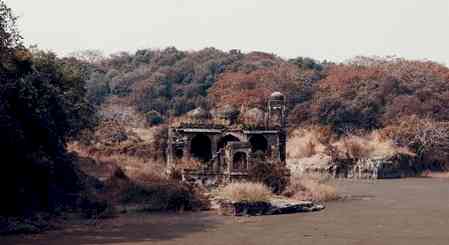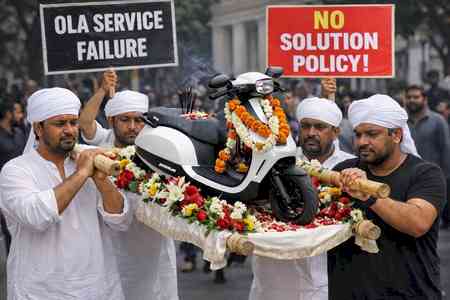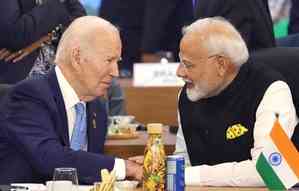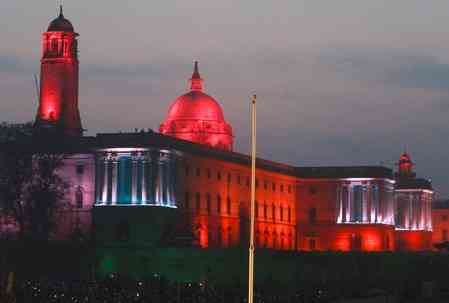Biden, Modi or who? Wanted a world leader at UNGA this week (Opinion)

By Robinder Sachdev
Who could be the 2-3 personalities from among the 200 or so heads of governments, who could rise and shine, and give hope to humanity, freedom and peace, this week at New York?
As the United Nations convenes its annual General Assembly in New York City this week, a galaxy of world leaders is arriving to address the world's most important podium, and audiences. They will step up to the podium to share their 2 cents, in their 2 minutes of speech time (ok, may be 7-8 minutes), to give solutions to the challenges and opportunities in the present and future of humankind, and co-existence on, and with planet Earth.
Make no mistake, this year the gathering is historic. In fact, the 76th Session of the UN General Assembly should rather have been named as 'The 1st UN General Assembly Meeting in Year 1 of the Post-Covid Era'.
A once in a century pandemic, unprecedented and quantum leaps in technology, the shambolic end of America's longest war of 20 years, and the dark shadow of a looming China - all have created perfect conditions for a once-in-a-century storm, as the post-Covid era begins.
Other global re-calibrations and tectonic shifts, too, are underway. Including a reality that climate change is knocking at our door-steps, with wild-fires, floods, droughts destroying our homes and lives, among other dire scenarios.
The UN may be much derided and has not delivered on what its founding principles were, but yet it remains and is the only world platform which can be nearest to a global problem-solver-in-chief. That the global problem-solver-in-chief is itself in deep problems that cannot be resolved, is another matter, and the world will have to manage whatever best can be.
But still there is hope. And there is scope. Some leader must, and has to, show leaderism.
After all, mere words will not do. Firstly, there has to be depth behind the words, and a will and a path to take the words ahead into measurable outcomes. Secondly, the country that the leader represents, on which s/he builds the edifice of a powerful, persuasive world-vision, must have material strengths of population size, economic heft, and military power.
And thirdly, the leader must also bring a legacy, showcase some simple but big human, humane, and social principles, and inspirational energy for the good of humanity that has emanated in the last 100-200 years from the country that s/he represents.
As the sun rises on a post-Covid world order in the 21st century, there are very few countries that have a combo-pack of above three vectors. One, of course is the United States, which is the world's oldest democracy, the world's largest economy, with the largest military today.
The other, China, though a rightful claimant, rules itself out since it advocates an authoritarian governance, control on human lifestyles, and is contra-freedom of thought and choices.
Another up and coming force for good in the world is India - which is the world's largest democracy, with a rising economy and military might. More than that, India brings a voice of calm, co-existence and peace. The challenge for India is to bundle all its assets and offerings into a cohesive, demonstrable message, and to drive a buy-in and mobilisation across the world.
Whoever it may be, will have to persuade, lead by example, and give the world some simple mantras and do-able solutions. It is equally possible that none of the leaders soar and truly inspire in their speech, bring nothing new, remain parochial and non-futurist, churn out same old arguments, and prescribe the same non-doable solutions that are routinely parroted out, year after year.
Thus, the world is looking eagerly, nay desperately, to US President Joe Biden and Prime Minister Narendra Modi, to hear their vision of a new world order, and to know how they will execute on the mission that they define for themselves, their nation, and the world. Or maybe they will be insipid and disappoint.
At same time, this year a surprise, last-minute, wild-card entry to this club may be France - led by President Emmanuel Macron. France has all three of the above cited vectors in reasonable proportion, and for long it has been aspiring to play a global role.
The geopolitics of 21st century is in a flux, including on how to deal with China's rise, and the outcomes of Afghanistan. And for France,additionally, it is now a downhill trust in a US-led world order as a consequence of the US-UK-Australia submarine deal and formation of the AUKUS military alliance.
Thus, while the world has much to look forward this week from Biden and Modi, I will not be surprised if Macron, and France, may have reached a tipping point wherein Macron sketches a world vision that may well see the birth of a new world-pole in geopolitics. After all, it is the French who gave the world the French Revolution.
(The writer is the president of The Imagindia Institute. The views expressed are personal)


 IANS
IANS 
